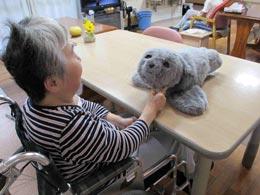Family senior care declining across Asia

Asians increasingly think retirement should be funded by the individual, a departure from the traditional view that the elderly should be cared for by the family, according to newly released survey data released.
"Despite the current high-level of dependence [on family members], people don't want it this way," said Richard Jackson, founder of the Global Aging Institute.
It conducted the From Challenge to Opportunity: Wave 2 of the East Asia Retirement Survey. The institute surveyed people aged 20 or more who were the main earners.
Just 6 to 13 per cent of respondents in China, Hong Kong, South Korea, Vietnam, Thailand, Indonesia, Malaysia, Taiwan, Singapore and the Philippines said grown children or other family members should provide financial support for the retired.
The majority of respondents said either governments and individuals should be responsible for providing income to retired people.
The Philippines and Thailand saw 66 per cent of respondents say the government should be responsible for providing retirement income, the highest rates among those surveyed.
Places with a rapidly ageing population and pension schemes whose payouts are decreasing because of this burden like South Korea saw just 23 per cent of respondents say the government should be responsible.
Sixty-one per cent of South Korean respondents said individuals should be responsible for their own retirement.
Jackson attributed the change to the rise of "selfish Western values" as Asia's economies grow, and the decline in the size of families.
He also warned current retirement systems in Asia were not robust enough and risked leaving significant proportions of the elderly population destitute and a burden on social services.
While it is difficult to predict numbers, he said: "Fifty-five per cent of Indonesians [surveyed] aren't going to get [a pension], 80-90 per cent expect to live with their grown children, and when retired expect to have income from a business or job."
"I know China has a law saying children have to look after their parents, but good luck enforcing it," said Jackson.
In China's case, successive generations of one-child families could leave many couples relying on a single offspring, another expert said.
That one person "may need to provide for 14 people," said Alfred Cheung, director of the Asia-Pacific Institute of Ageing Studies at Hong Kong's Lingnan University.
But as people realise that neither family nor the state can be relied on in old age, "individuals are becoming more concerned and caring about their own retirement - especially now we live into such long years," Cheung said.
The Global Aging Institute's Jackson recommended governments enact fund-based pension schemes and raise the amount of mandatory contributions, and for the poor that may not be able to save as much have a government matching scheme.
"Two for every one you put in," said Jackson.
Australia's pension system and social safety net was an example of a robust model, he said.
He also advised governments to raise the retirement age and for both the public and private sector to support financial products that do not give lump sum payments, but monthly retirement income streams.
"It's to protect people against the consequences of bad choices," said Jackson.
The report was funded by financial services company Prudential. Some 750 to a 1000 people were surveyed in each country in a random sampling.









